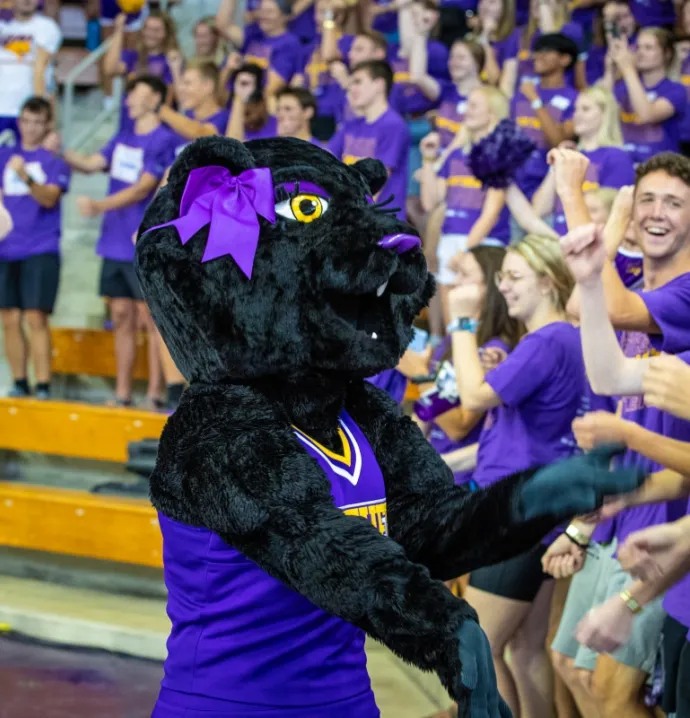UNI reports fall enrollment, student success trends
UNI reports fall enrollment, student success trends
In its official census day headcount, the University of Northern Iowa reported a total student population of 10,497, as well as a marked increase in a number of important areas including a record high four-year graduation rate.
While total enrollment is down from one year ago, the university began planning for the decrease in the early spring, making budget adjustments and working with the Board of Regents on a funding model to keep tuition rates steady.
“Our successes in graduation and retention are clear indicators of the value of a UNI education,” said President Mark A. Nook. “Our students receive a rigorous education, a tremendous campus experience, and the preparation they need for success in careers and in life. UNI plays a critical role in the education of Iowa’s workforce and in the strength of its economy, and our goal is to make sure the university is a top option for students from Iowa as well as surrounding states.”
In its analysis of enrollment and success indicators, student achievement remains high. In addition to its 44.1% four-year graduation rate (an increase of four percentage points over last year and the highest rate in the university’s history), UNI realized an 83.4% retention rate for first-time, full-time freshmen returning this fall.
Strong graduation and retention rates also mean students are moving through their degree programs at a steady pace – which helps them limit their debt. UNI was recently recognized as a national leader in low student indebtedness – due, in part, to the university’s “Live Like a Student” program promoting financial literacy. Another factor impacting the decrease in student debt is the fact that more students are entering UNI with college credit earned in high school - as well as taking more credits their freshman year and progressing to their sophomore year faster.
While Iowa’s low unemployment rate, as well as UNI’s higher graduation rates, have contributed to the university’s enrollment numbers, administrators are making important improvements to UNI’s financial accessibility.
To further lower the cost of attending UNI, the university recently announced the establishment of new scholarships for incoming resident and non-resident students beginning in the 2020-21 academic year.
All Iowa residents applying to UNI will be eligible for the new Panther Impact Award, which will award between $1,000 and $3,500 annually based on standardized test scores and GPA. Students from traditionally underrepresented populations could also qualify for the “Unifying Through Excellence and Diversity” (UNI-TED) Scholarship, which provides between $1,000 and $2,000 per year based on academic performance.
Additionally, newly graduated out-of-state high school students will begin receiving an automatic $5,000 award upon admission through the new UNI Advantage program. These students can also receive an additional $1,000 or $2,000 through the award if they meet academic benchmarks. Additional legacy scholarships are available for out-of-state students whose parent, grandparent or sibling graduated from UNI - or if they have a sibling currently enrolled.
“Universities have become much more competitive in the last few years,” Nook said. “Members of the university community will continue to focus on providing the high-quality education students need to be successful after they graduate, while celebrating the value of a UNI education.”




